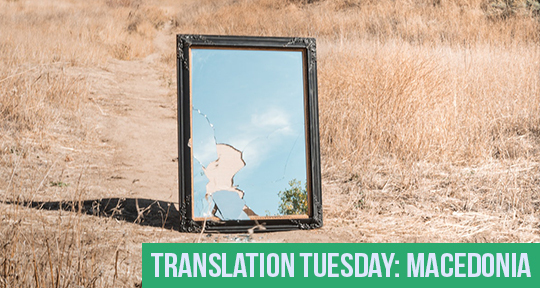This week, our Editors-at-Large celebrate writers of children’s literature, experimental postmodern novels, and memoirs of oppression. From a celebration of a beloved poet in Mexico to a new novel by a novelist and comics scholar in North Macedonia, to a recently republished chronicle of Greece’s years under dictatorship, read on to learn more!
Sofija Popovska, Editor-at-Large, reporting from North Macedonia
“Forgetting is a modern phenomenon that goes beyond the usual individual, medical frameworks,… because it is already an instrument for political and wide(r) scale manipulation, embedded in… almost the whole society”, writes literary critic Gligor Stojkovski in the preface to the latest novel by the author Tomislav Osmanli. Known for diving deep into the problems of history and modernity, Osmanli zeroes in on collective forgetting as a pathological social force in Zaborav (Forgetting), his fifth novel.
Osmanli (b.1956 in Bitola) is a media critic, poet, screenplay writer, dramatist, and author of multiple prose works. His first novel won the Best Macedonian Novel Award and was shortlisted for the Balkanica Literary Prize and his scholarly work, Comics: Scripture of the Human Image, was the first example of comics studies published in Yugoslavia. With a father of Macedonian and a mother of Greek descent, Osmanli grew up trilingual—speaking Macedonian and Greek, and having been taught Aromanian by his paternal uncle. His work as an independent editor and member of the editing board of his nation’s oldest daily newspaper, Nova Makedonija, from 1991 to 1998, as well as his theoretical studies in political cinema, are visible in the themes of his fiction. His scholarly interests blend with his mixed cultural heritage and find expression in Zaborav, a postmodern tapestry of lives and languages.
Told almost entirely in present tense to illustrate the loss of connection between past and present, Zaborav renders a bleak social landscape where values and freedoms previously achieved are being obscured by false spectacle and slipping into oblivion. The novel’s characters, increasingly egotistical and politically repressed, are unable to resist hypercapitalism. To capture both the fragmentation and diversity of modern society, Osmanli weaves his text from documentary citations, fictional scientific language, multilingual speech, dialects, web-addresses, footnotes, and QR codes leading to musical pieces which complete the atmosphere of the passages where they are found. The philosopher Ferid Muhić, speaking at the novel’s launch, notes that Osmanli’s “suggestive, …original…, and deeply humanistic” novel creates awareness which acts as an antidote against the “pandemic” of “collective forgetting.”




